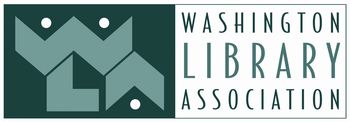- Home
- About
- Join
- Groups
- Divisions
- Sections
- Section Chair Roster
- CAYAS (Children & Young Adult Services)
- CLAWS (College Libraries Across Washington State)
- IFS (Intellectual Freedom Section)
- LISS (Library and Information Student Section)
- SAIL (Serving Adults in Libraries)
- SRRT (Social Responsibilities Round Table)
- WALE (Washington Library Employees)
- WALT (Washington Library Trainers)
- WLFFTA (Washington Library Friends, Foundations, Trustees & Advocates)
- Committees
- Advocacy Committee
- Alki Editorial Committee
- Conference Committee
- Finance Committee
- Grants and Partnerships
- Legislative Committee
- Marketing Committee
- Member Services Committee
- Professional Development Committee
- OTTER Book Award Committee
- Sasquatch Book Award Committee
- Towner Book Award Committee
- WCCPBA Committee
- Advocacy
- Support
- Resources
- Conferences & Events
- Awards & Scholarships
|
UW iSchool to Tahiti: Oral Traditions, Knowledge, and Science Between July 25th and August 23rd, 2013 I took part in the University of Washington study abroad program in French Polynesia. Entitled iSchool Tahiti: Oral Traditions, Knowledge, and Science, the project brought together MLIS, anthropology, and communications students for a month of experiential learning. Through readings, interactions with Tahitians, and field trips to locations around the island, we explored the role that oral traditions play in the lives of Tahitians - both past and present. We sought answers to questions such as: what constitutes an oral tradition? How are oral traditions used? How are they viewed as creditable? And what impact is technology and social change having on oral traditions? In short, we looked at the role oral traditions play in contemporary Tahitian society by studying songs, dances, stories, legends, and artistic endeavors. We found that oral traditions are held in the collective memory of Tahitian islanders, are used to store and transfer long held cultural knowledge, and are based on over a thousand years of observation, interpretation, and interaction with the landscape in which Tahitians exist. For me, the best parts of this experience was being able to make the connection between something we’d read, discussed with a local knowledge holder, and then experienced on our own out in the world. Several examples of this phenomenon include feeling the way a boat moves and connecting that to the knowledge that movement can inform you on direction and speed. Or that by the way roasted breadfruit sounds when slapped and thumped inside a dish towel will inform you as to whether it is thoroughly mashed and ready to eat. These understandings are held in the collective memory of local people and are passed down from generation to generation by story and shared experiences. Tahiti does not have a lot of libraries; in fact, in the capital city, the only library is at the University of French Polynesia. The culture is rich in stories and knowledge held within the land and people - these are their libraries of knowledge and that knowledge is shared with everyone. |

